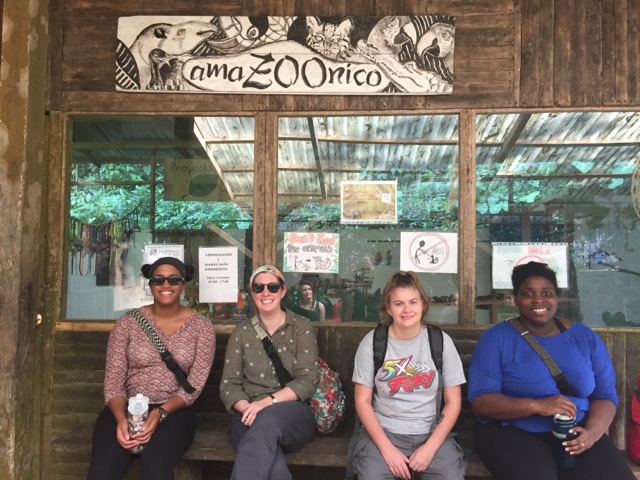Ecotourism is defined as ecologically sound tourism, and is generally judge by 3 criteria:
1. Provides for environmental conservation
2. Includes meaningful community participation
3. Is profitable and can sustain itself
AmaZOOnico Rescue Center is located in Tena, Ecuador, right on the Rio Arajuno (part of the Rio Napo). It is an animal rehabilitation center that cares for confiscated rainforest animals. They make every effort to reintroduce animals back into the local environment, but at times we learned that it is impossible, and so the center has become a permanent home for many animals from monkeys to tapirs, to toucans. The reasons varied, but among them were issues related to viruses that some of the birds were exposed to, and primarily the impact of having been around humans so long that they were no longer fearful to be around them, and hadn't learn how to survive in the wild. One other common reason was that so that indigenous tribes wouldn't hunt endangered birds for their feathers for traditional rituals. The center is focused on saving animals and is staffed by volunteers from around the world.
It was clearly a well-thought out ecotourism site, but we were left with a question about the local context:
The animal preservation was from a Western cultural lens. In some cases the animals were being protected from indigenous peoples practices. We wondered about the other side of the argument.




No comments:
Post a Comment